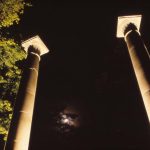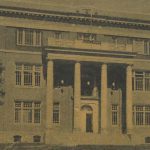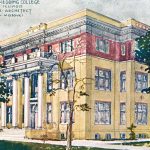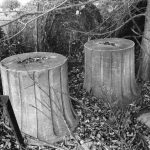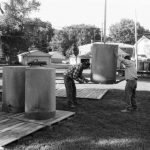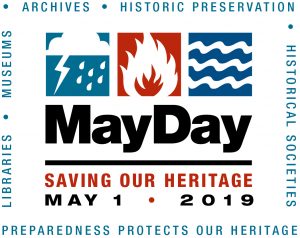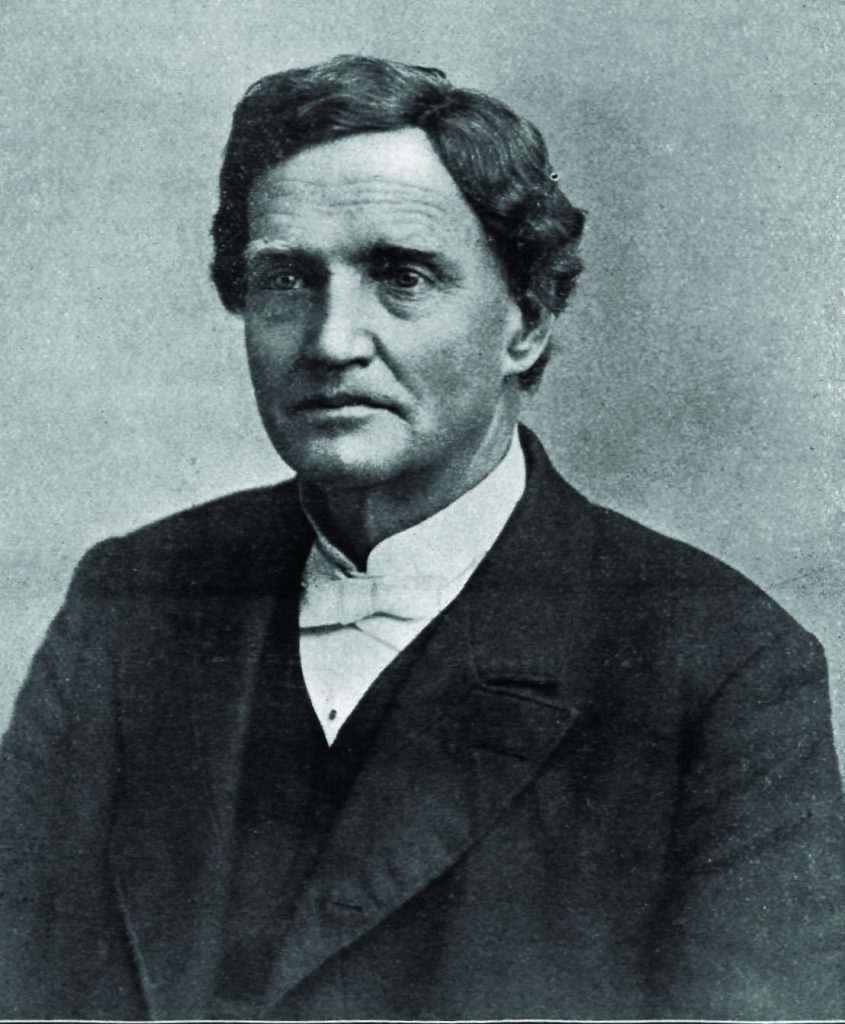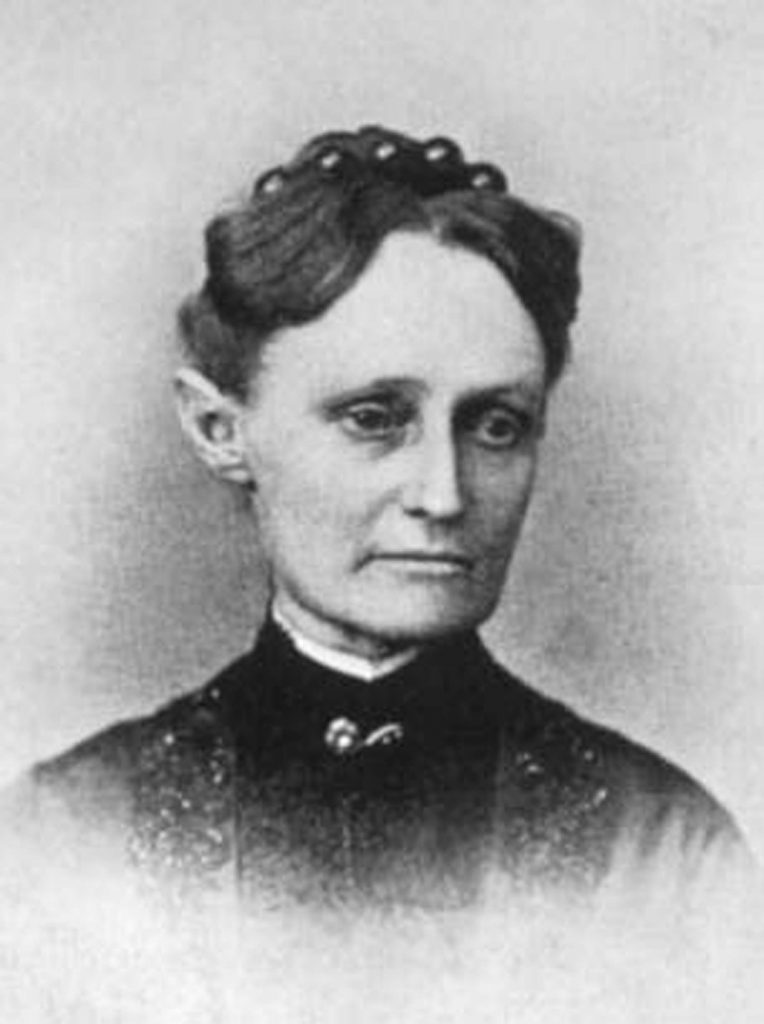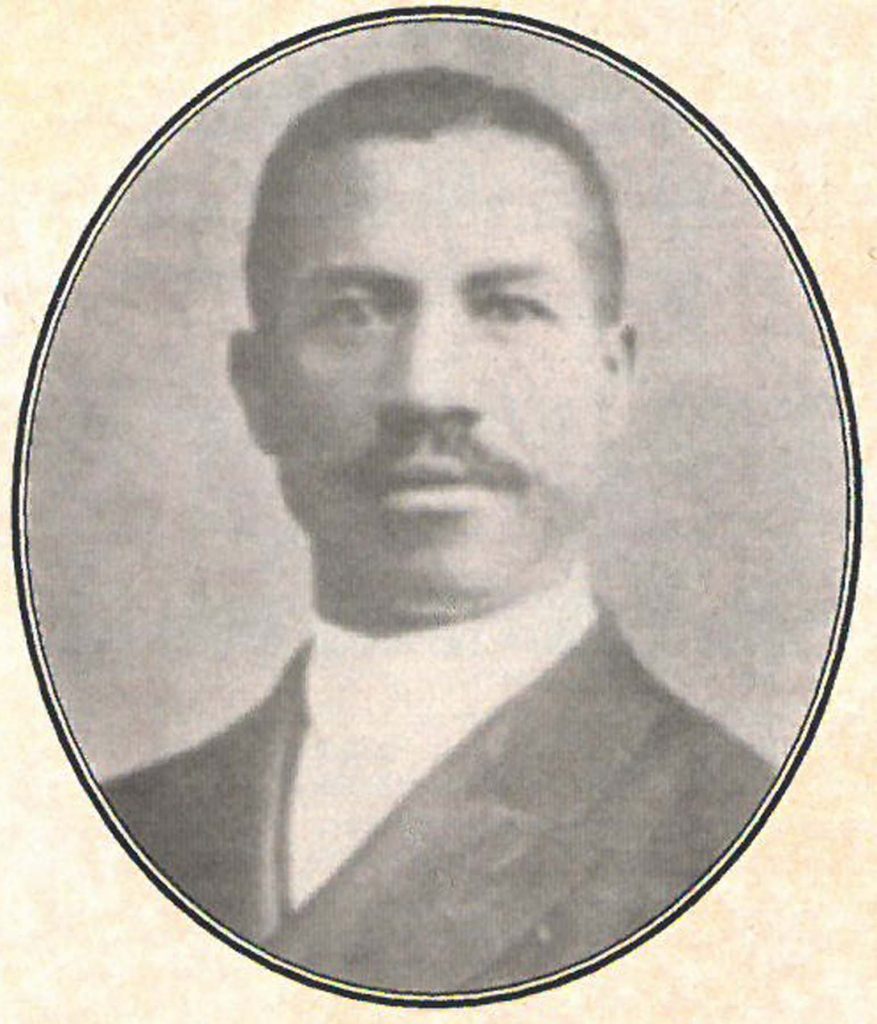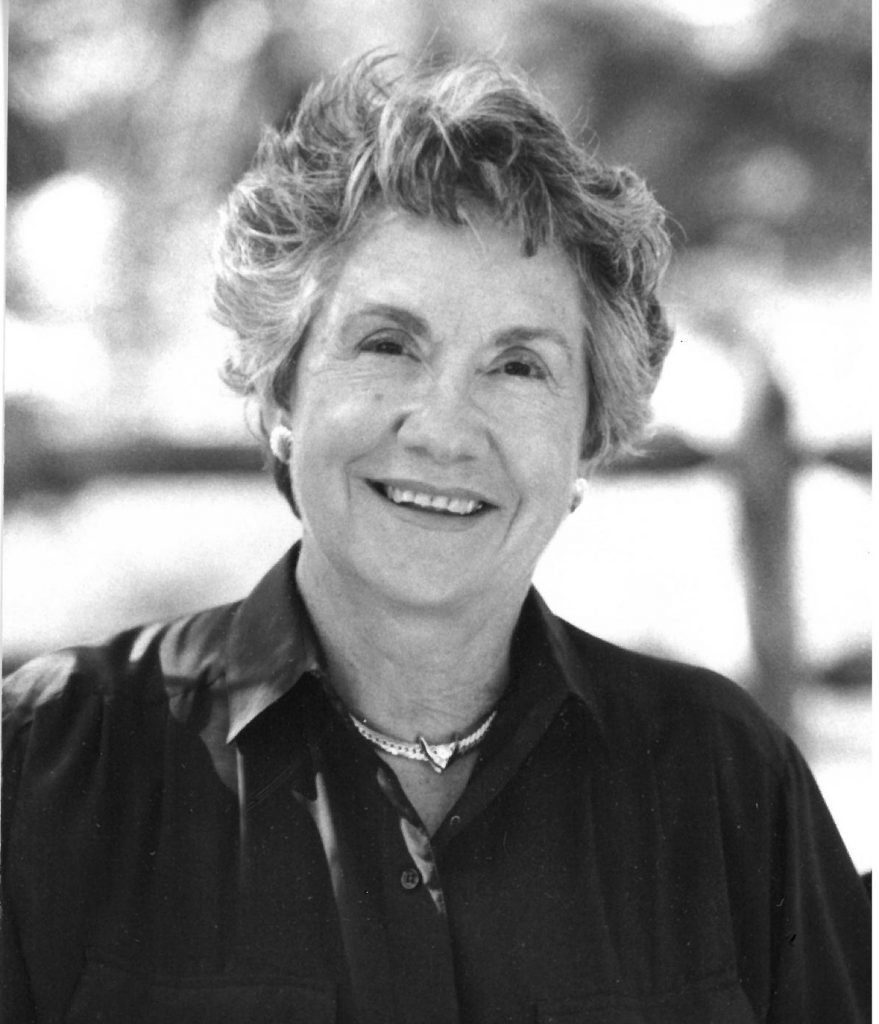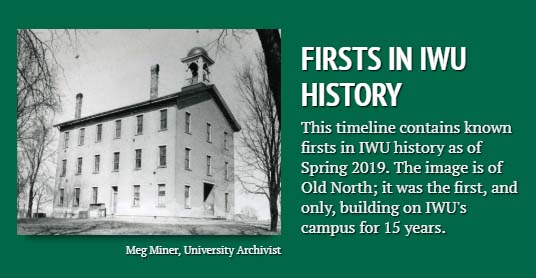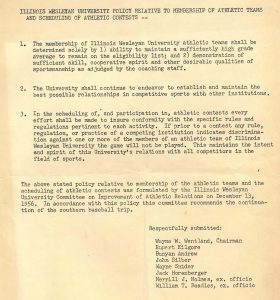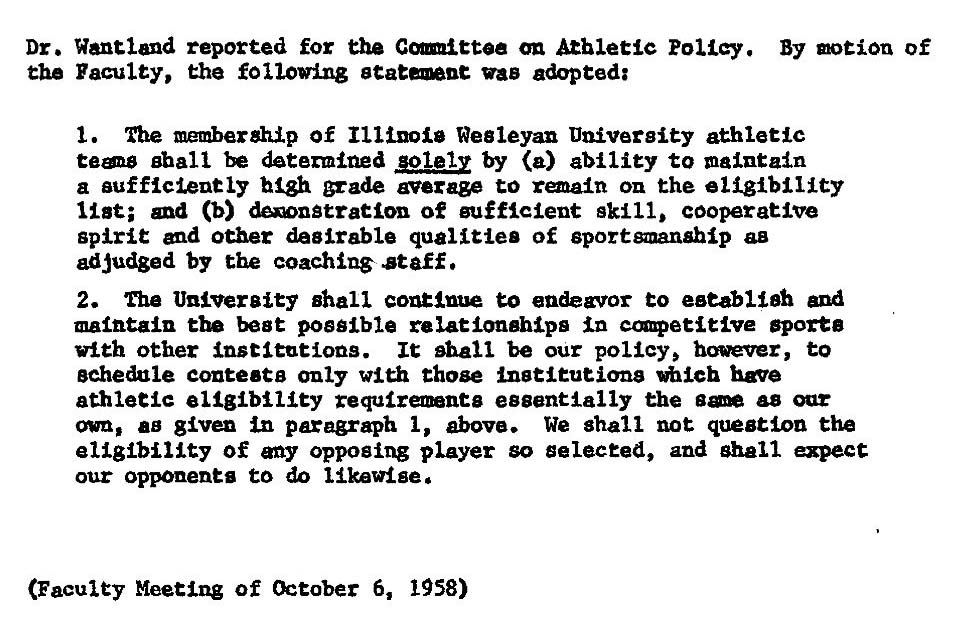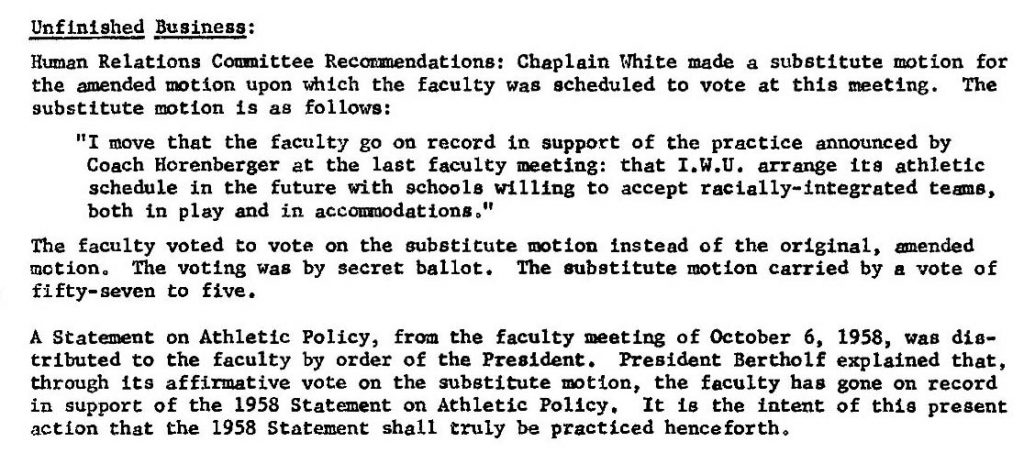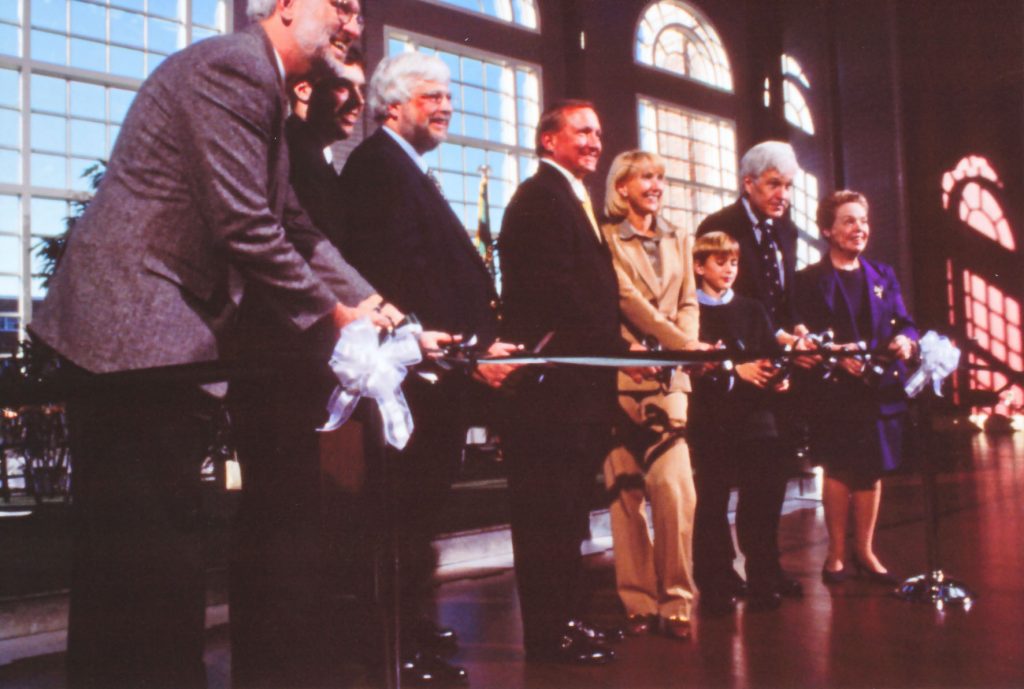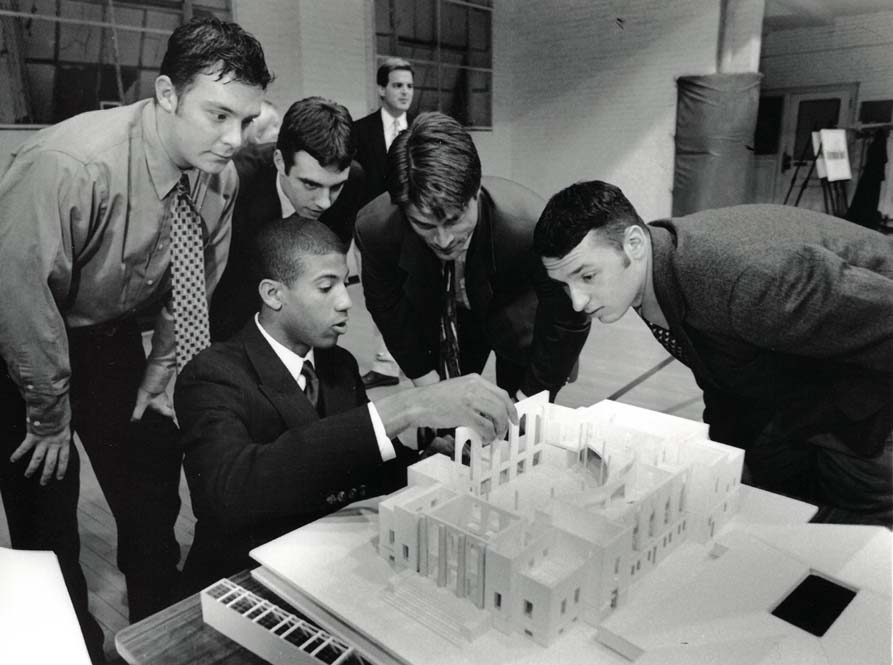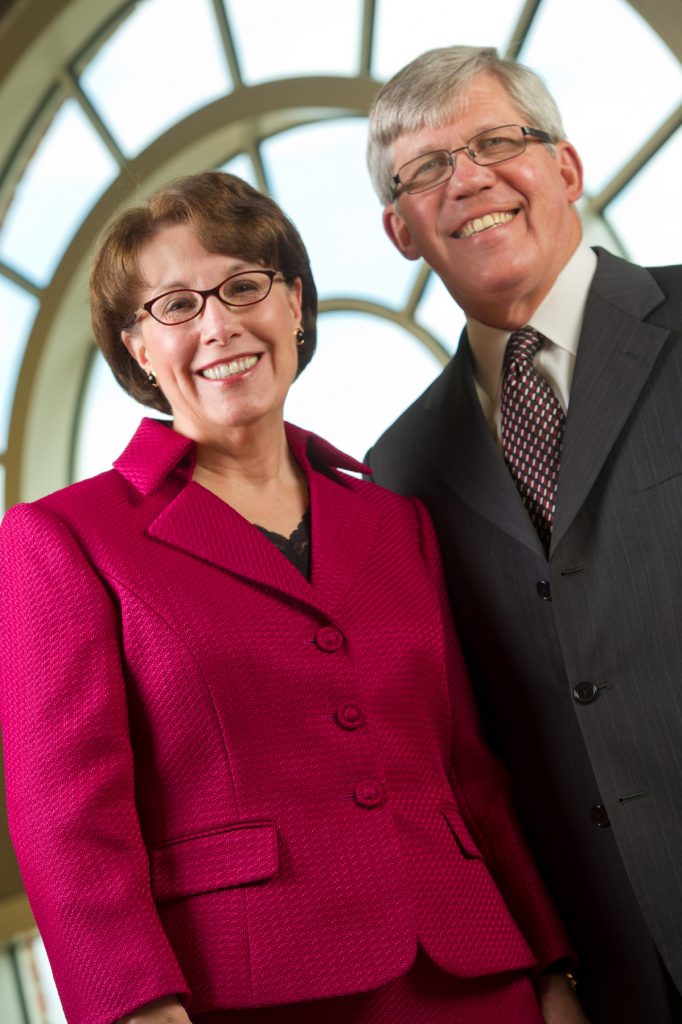The Society of American Archivists promotes May 1 as a day for all cultural heritage institutions to take time to consider how well their collections are protected.
At IWU’s University Archives, (located in Tate Archives & Special Collections, 4th floor, The Ames Library) we conduct collection assessments and use high quality material to protect the analog items in our care. We also subscribe to high quality digital preservation services and redundant storage media to protect historically important electronic files. Physical Plant’s Heating/Cooling crew conducts regular maintenance to make sure our environmental conditions are efficient and effective. Other maintenance personnel and cleaning crews from Physical Plant keep our building in good condition, too.
Protecting our collections is one of our fundamental responsibilities as archivists. But sometimes disasters are so devastating that all we can do is offer funding to support clean up and recovery. That was true in 2018, when Hurricanes María and Irma wreaked havoc on repositories in Puerto Rico and the US Virgin Islands.
The SAA Foundation’s National Disaster Recovery Fund for Archives was there to help, providing more than $37,000 in grants to support our colleagues. Here at the Ames Library, we also take a building-wide approach to disaster preparedness by conducting fire drills, having regular site visits with the crews of Bloomington’s Fire Department both to familiarize them with our floor plans and collection concerns and to give us their insights into our safety practices.
The whole reason we can have repositories for cultural heritage like archives and museums is because people have saved items significant to their lives and our collective history. Here’s what you can do to help:
1. Take a look around your home or wherever you store the mementos of your life and the lives of people who are important to you. Is a lot of it in long-term storage? Is the storage room subject to temperature and humidity fluctuation?
TIP: You don’t need to have cold storage to make paper and print photographic collections last. Constant levels of each are the most important thing. 70 degrees F is the upper recommended limit, but keeping storage spaces well-ventilated and preventing frequent fluctuation can help your stuff go a long way into the future.
2. Are your mementos sitting on the ground? Try putting a pallet underneath boxes or raising them 4-6 inches off the floor with something else.
3. Avoid stacking boxes directly on each other if at all possible. Open shelving is optimal: leaving space on all sides of stored material promotes air circulation and limits the chance that mold will develop.
4. Do you have digital files? Do you back up your hard drive or use a commercial company for online storage? If you’ve got a back up hard drive, is it located near your primary digital storage place? Explore ways to back up your important files and keep them in a separate location to lessen the chance for loss if there’s a fire or natural disaster in your area.
5. Are your digital images labeled? File names like DSC7723, DSC7724, and so on can accumulate faster than you think. After awhile, how will you know what you are saving?
TIP: At a
minimum, make folders with event names and dates to store photos in or
create an index that associates this information with the
program-generated file names.
6. Are your physical collections falling apart? Books, photo albums, scrapbooks and textiles need attention if they are to last. Taking photos out of old albums whose adhesives are failing and making sure they’re labeled is a good start. Some books may be rebound, but many will survive well into the future in a box or wrapper designed for them. Photocopying or scanning newspaper clippings can preserve their information without the worry of deterioration due to typically acidic scrapbook pages and/or newspaper itself.
TIP: Don’t seal anything in a plastic bag! Condensation forms quickly in plastic and damp, airless environments promote mold growth.
If you have concerns about any of your personal collections, I’m happy to talk with you about them. Use the Library of Congress’s Personal Archiving tips and the American Library Association’s Preservation Week as opportunities to take stock of what you’re keeping, why it’s important to you and how you can act in ways that will keep your heritage safe for years to come!
Note: more ideas are available in one of my previous blog posts.



